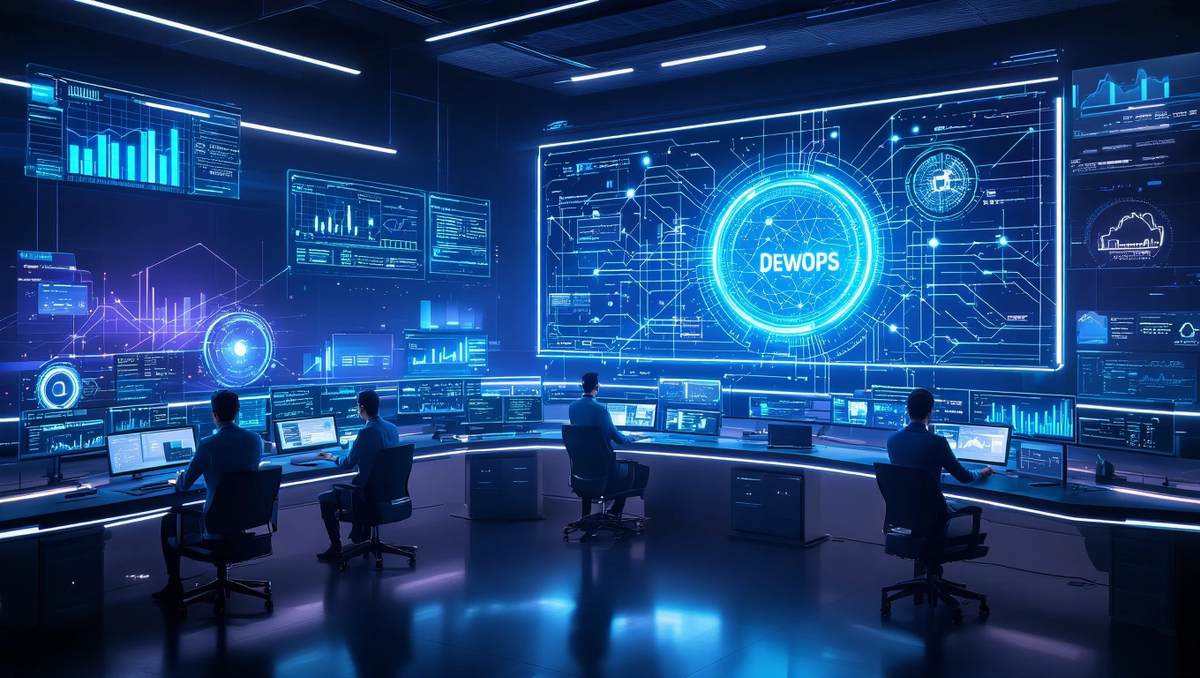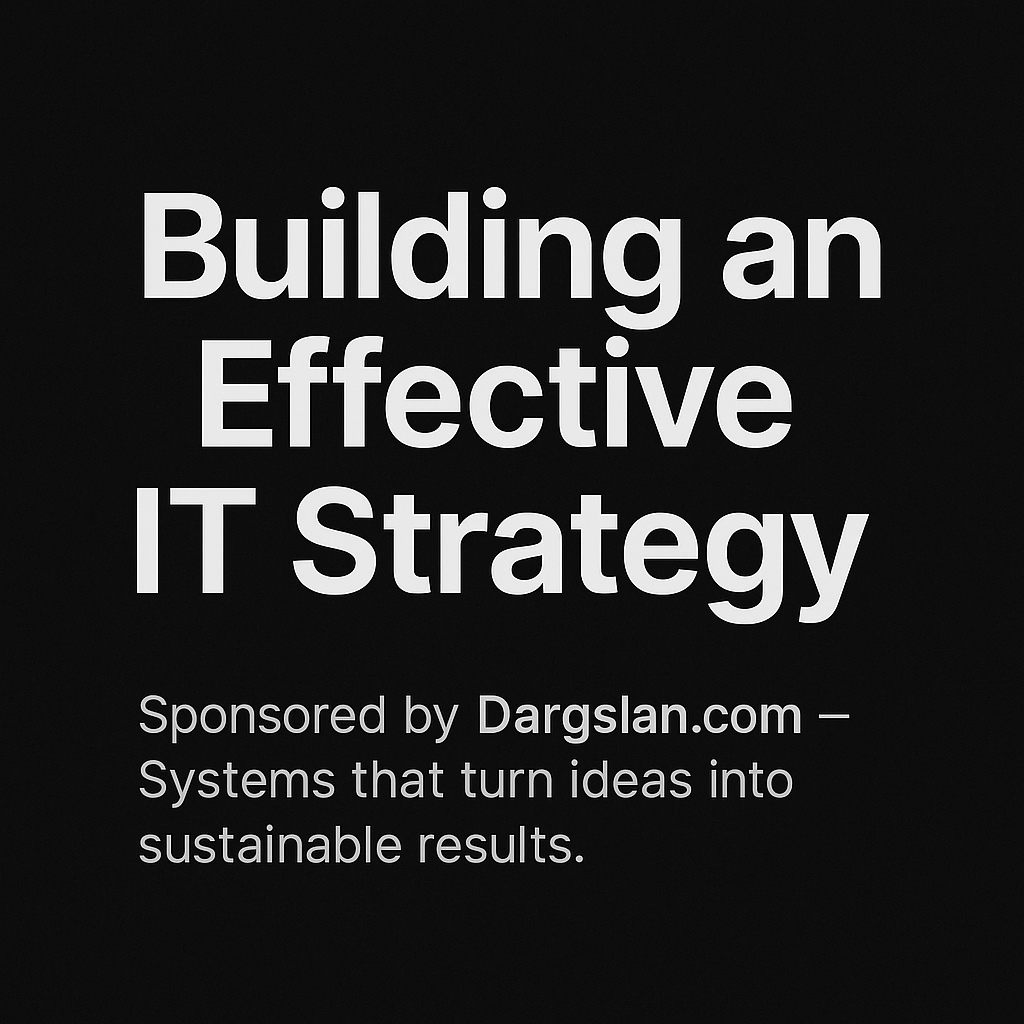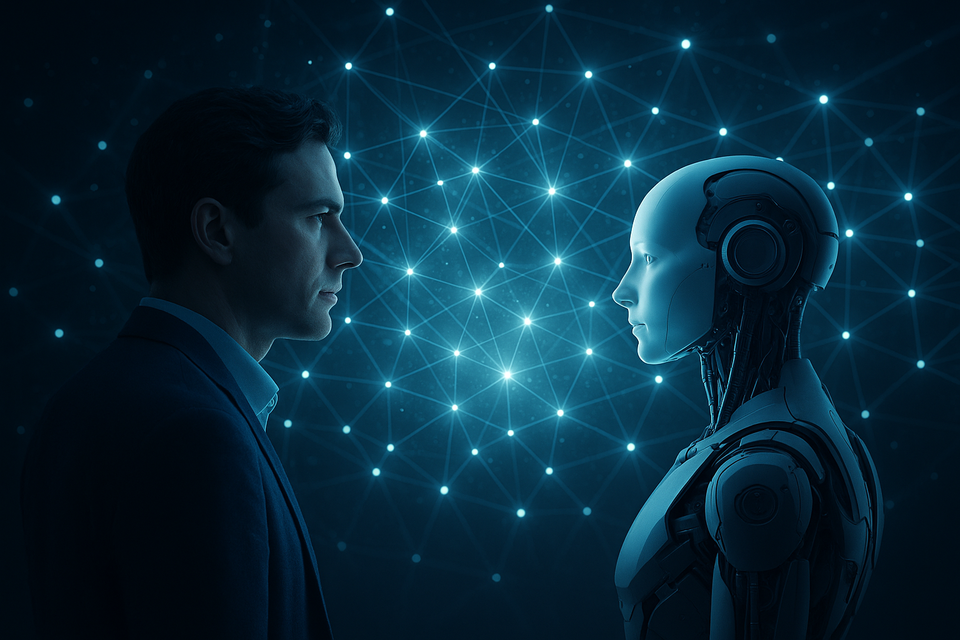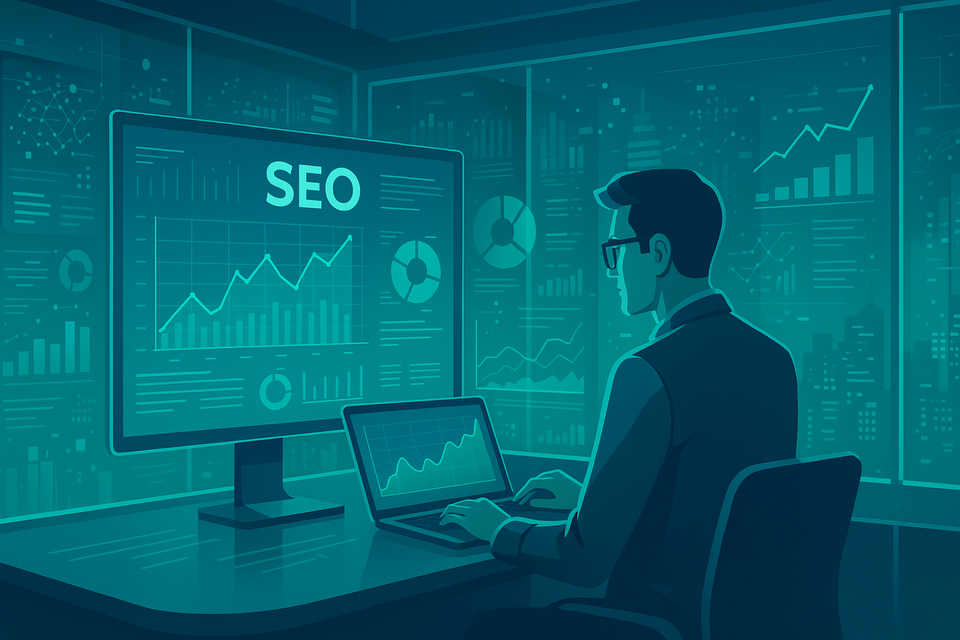The Rise of AI-Powered DevOps: Automating the Future of Software Delivery
AI is revolutionizing DevOps by predicting failures, optimizing deployments, and automating entire workflows. Learn how AI-driven DevOps is shaping the next generation of software delivery.

Introduction
The world of software delivery is evolving — fast.
Gone are the days when deploying applications required manual scripts, human monitoring, and sleepless nights. The new generation of DevOps is AI-powered, data-driven, and self-optimizing.
Artificial Intelligence is not just an addition to DevOps — it’s becoming the brain of modern automation. By learning from logs, patterns, and performance metrics, AI systems are beginning to predict, prevent, and perfect every stage of the software lifecycle.
In 2025 and beyond, the fusion of AI and DevOps isn’t optional. It’s the foundation of how modern teams deliver software at scale.
1. What Is AI-Powered DevOps?
At its core, DevOps aims to bridge development and operations, ensuring faster and more reliable software delivery.
AI takes this a step further by introducing self-learning automation.
AI-powered DevOps means that systems can:
- Analyze logs and detect anomalies in real time
- Predict infrastructure bottlenecks before they occur
- Automate repetitive deployment tasks
- Optimize resource usage dynamically based on demand
It’s the evolution from manual automation to intelligent orchestration.
2. Why DevOps Needs Artificial Intelligence
Traditional DevOps tools are powerful, but they’re reactive. They respond when something goes wrong. AI changes that equation entirely.
By integrating machine learning models, AI allows DevOps teams to:
- Detect failures before they impact users
- Improve continuous integration and delivery pipelines (CI/CD)
- Optimize cloud costs and infrastructure allocation
- Correlate multiple data sources (logs, metrics, traces) into a single insight
Imagine a DevOps environment that fixes itself — restarting failed services, reallocating memory, or rolling back unstable releases before humans intervene. That’s not science fiction anymore.
3. Key Applications of AI in DevOps
AI is transforming nearly every layer of the DevOps ecosystem:
🧠 a. Predictive Analytics
Machine learning models analyze system performance data to identify early warning signs. Instead of reacting to downtime, teams can prevent it.
🔍 b. Intelligent Monitoring
AI replaces static alerts with adaptive, context-aware monitoring. Tools can distinguish between harmless spikes and real threats, reducing alert fatigue.
🧩 c. Automated Testing and QA
AI-driven test generation ensures broader coverage and detects edge cases that humans often miss. Regression testing becomes faster and smarter.
🛠️ d. Continuous Optimization
AI engines continuously tune resource allocation, load balancing, and container orchestration to improve system efficiency.
🔐 e. Security Automation (DevSecOps)
AI enhances DevSecOps by scanning dependencies, identifying vulnerabilities, and recommending immediate patches.
4. How AI is Changing the DevOps Lifecycle
AI touches every phase of the DevOps cycle:
| DevOps Stage | AI Contribution |
|---|---|
| Plan | AI analyzes historical project data to improve sprint planning. |
| Build | Code analysis tools detect bugs and security flaws early. |
| Test | Automated test case generation and coverage optimization. |
| Deploy | Predictive deployment with rollback recommendations. |
| Monitor | Real-time anomaly detection and root-cause analysis. |
| Optimize | AI tunes system performance and resource allocation automatically. |
This integration means faster feedback loops, lower error rates, and continuous delivery that truly runs 24/7.
5. Benefits of AI-Driven DevOps
The advantages are massive:
✅ Proactive Issue Resolution: Systems fix problems before they impact users.
✅ Reduced Downtime: Predictive monitoring minimizes outages.
✅ Smarter Resource Usage: AI dynamically scales cloud resources.
✅ Higher Code Quality: Machine learning catches inefficiencies and vulnerabilities.
✅ Enhanced Collaboration: Developers, operations, and AI systems share a common feedback loop.
6. Challenges in AI-Powered DevOps
Every revolution faces resistance. Integrating AI into DevOps comes with challenges:
⚠️ Data Quality: Poor or incomplete data leads to inaccurate predictions.
⚠️ Complexity: AI systems need proper training and ongoing monitoring.
⚠️ Security: Misconfigured AI models can expose sensitive system data.
⚠️ Skill Gap: DevOps engineers must learn to interpret AI-driven insights.
Organizations that succeed in AI-powered DevOps invest equally in technology and training.
7. Tools Leading the AI-DevOps Revolution
Several tools are already shaping this landscape:
- Datadog AIOps – AI-based observability and predictive incident response.
- Dynatrace – Automated anomaly detection and root-cause analysis.
- Splunk ITSI – AI-powered performance insights for hybrid environments.
- Harness.io – Machine learning for continuous delivery and cloud cost optimization.
- GitHub Copilot + Jenkins AI plugins – Integrating code intelligence into CI/CD workflows.
As these tools mature, they’re setting new standards for intelligent automation.
8. The Future: Autonomous DevOps
By 2030, we may reach Level 5 DevOps Automation — where the system manages itself entirely, with minimal human oversight.
Autonomous DevOps could:
- Predict optimal deployment times based on user activity patterns.
- Automatically roll out updates without breaking dependencies.
- Learn from previous failures to avoid repeating mistakes.
- Reallocate resources across clouds to minimize cost and latency.
At that point, developers will focus not on deployment, but on defining intent — telling the system what needs to happen, and letting AI decide how to execute it.
9. Preparing for the AI-DevOps Era
If you’re a DevOps engineer or developer, here’s how to stay relevant:
- Learn AIOps Fundamentals – Understand how data-driven automation works.
- Master Monitoring Tools – Platforms like Prometheus, Datadog, and Splunk are becoming AI-ready.
- Experiment with ML Models – Learn how predictive models identify anomalies.
- Adopt DevSecOps Practices – Security-first automation is essential.
- Stay Curious – The future belongs to adaptive learners.
10. Conclusion
AI-Powered DevOps isn’t just another tech buzzword — it’s the next evolution of automation.
The teams that embrace AI will deliver software faster, safer, and smarter.
The ones that ignore it will struggle to keep up.
As we step into the future, the boundaries between developer, operations, and AI system will blur — creating a new class of intelligent, self-managing infrastructure.
The future of DevOps is not just automated.
It’s autonomous.
Learn more about AI and automation at dargslan.com




